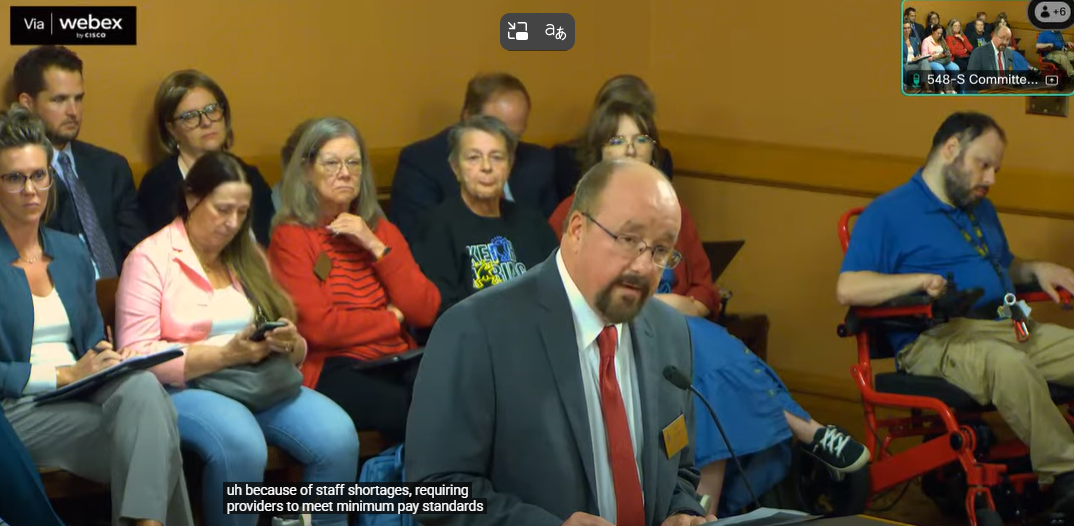KABC Hosts First Caring for Older Kansans Panel Discussion
On November 12th, KABC hosted our first Caring for Older Kansans Panel Discussion at the Baker Wetlands Discovery Center, bringing together an audience of around 40 attendees to explore the pressing issues facing long-term care in Kansas. The event was moderated by award-winning journalist Jim McLean, political correspondent for the Kansas News Service and Senior Contributor with Kansas Public Radio, who expertly guided the conversation.
Panelists
The panel featured three distinguished experts in the long-term care field:
- Janis DeBoer, former Deputy Secretary of Programs at KDADS and a 30-year veteran in long-term care, shared her knowledge on Medicaid services, nursing facility challenges, and the importance of community-based services.
- Camille Russell, former Kansas Long-Term Care Ombudsman, highlighted the importance of person-centered practices and shared her experiences advocating for nursing facility residents.
- Rep. Susan Concannon (R-Beloit) from District 107 offered a legislative perspective, emphasizing the need for reform in the long-term care system while navigating a challenging political environment.
Key Issues Discussed
The conversation touched on several critical topics:
1. Challenges in Nursing Facilities
Janis DeBoer noted that nursing facilities have long been difficult to manage, with a lack of effective quality care metrics and a system built more for providers than consumers. Rep. Concannon echoed this, citing the disconnect between government funding and accountability.
2. Policy and Data Gaps
The panel emphasized how the transition from the Kansas Department on Aging (KDOA) to the Kansas Department for Aging and Disability Services (KDADS) deprioritized senior issues. DeBoer stressed the need for statewide data to support advocacy efforts, while Camille Russell called for policymakers to hear directly from nursing home residents and an increase in grassroots advocacy efforts.
3. Workforce Challenges
Workforce shortages remain a significant barrier to quality care. DeBoer called for increased pay throughout the industry and better working conditions for CNAs. The panel agreed that a cultural shift is needed to make long-term care jobs more attractive and sustainable.
4. Transparency and Consumer Awareness
The panel discussed the need for greater transparency in the system, including access to quality care metrics and ownership information. Rep. Concannon pointed out that while survey data is accessible, most consumers are unaware of it.
5. Shifting Toward Community-Based Services
DeBoer underscored the cost-saving and quality-of-life benefits of reducing nursing facility stays by investing in community-based services. Research shows that these services increase the likelihood of individuals returning home and living independently.
Key Takeaways
The event highlighted three primary areas for improvement:
- Greater Transparency: Make information on facility performance and ownership readily available to consumers and the public.
- Improved Communication: Foster collaboration among stakeholders, including policymakers, service providers, and families, to address systemic gaps.
- Diversifying Service Options: Reduce Kansas's reliance on institutional care by expanding and strengthening community-based services for older adults.
Special Highlights
Sherman Smith of the Kansas Reflector attended the event to document the discussion, capturing key moments and engaging with attendees and panelists. The participation of Senator Francisco (D- Lawrence) and Representative McDonald (D-Olathe) further underscored the importance of legislative involvement in shaping the future of long-term care in Kansas.
This event was an impactful step toward fostering dialogue, raising awareness, and advocating for meaningful change in long-term care policy and practice in Kansas. We look forward to continuing the conversation and driving progress for older Kansans.






